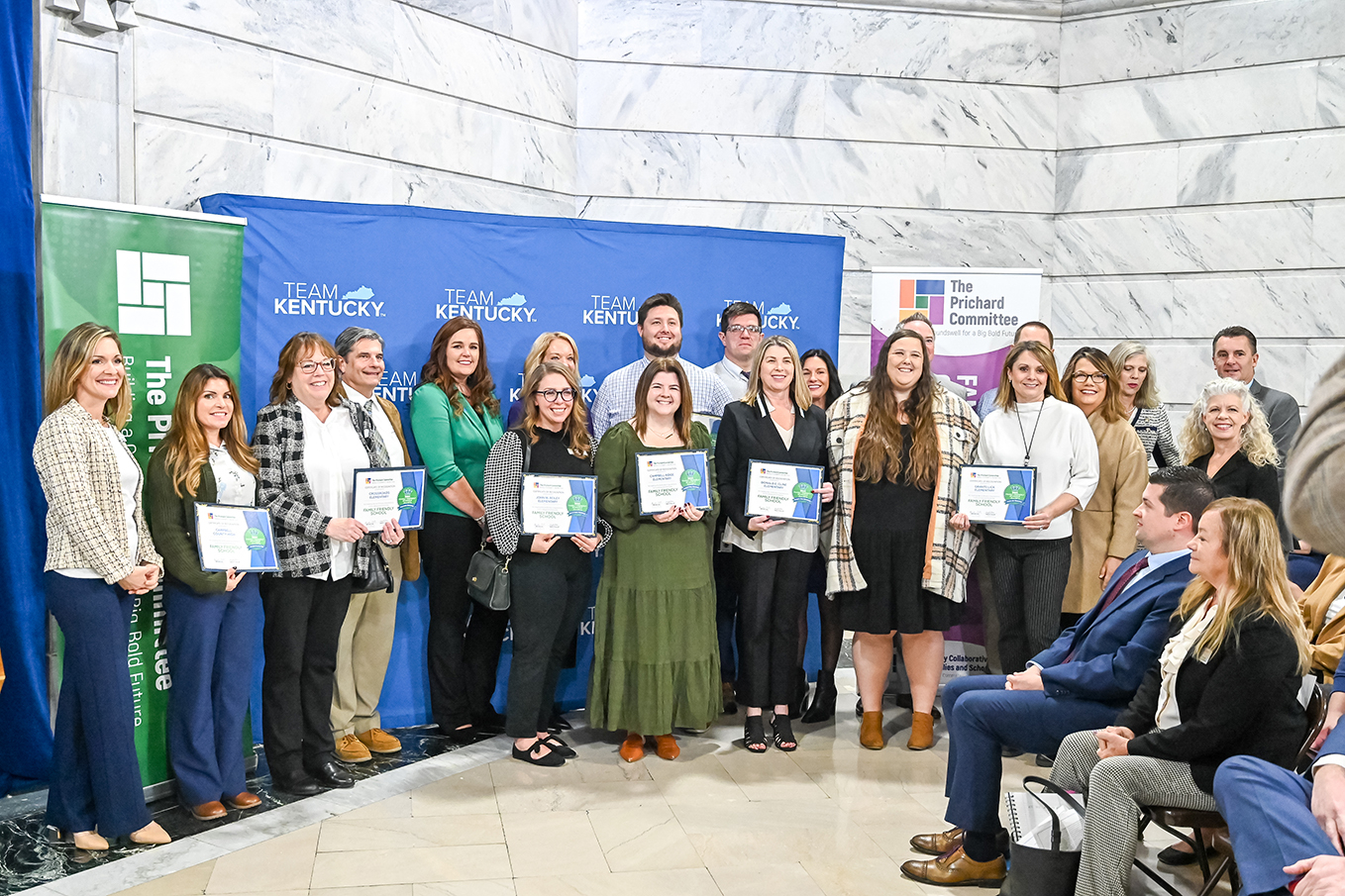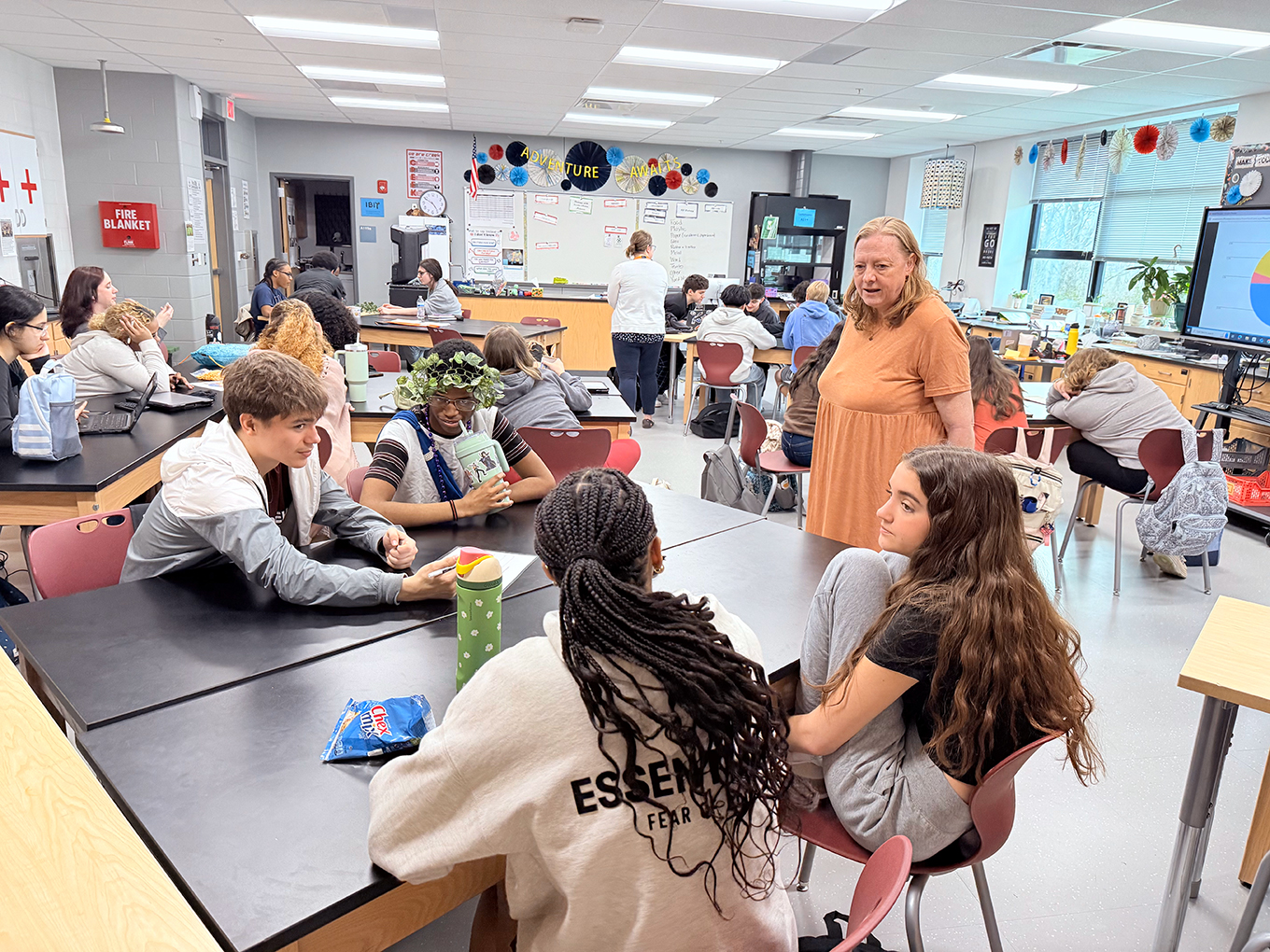
Josh Rhodes
By Josh Rhodes
joshua.rhodes@jefferson.kyschools.us
When I left the corporate world after nearly a decade in sales and management, I never envisioned I would be able to transfer those skills to education.
Imagine you are hired by a corporation to manage a territory of the business. The territory you will manage has been financially underperforming for several years. Customers have left, your top sales and customer service staff are now working for competitors, and media coverage of your corporation has been continuously negative.
Seeing that your territory needs a shot in the arm, corporate office hires some very talented, albeit inexperienced, folks to help turn business around. These new employees move through job training and shortly after are patted on the back with a “go get ‘em” and sent out into the field. After about three months in the field, sales numbers remain flat. Why?
Corporate office hired the best of the best and those new hires received the same training that highly successful salespeople have been receiving for decades. This should be a recipe for success. Only, business has changed. The landscape has changed. Your clients have changed; in turn, training must to change.
Much like corporations, schools deemed to be in priority status experience these same events. Administration turns over, teachers transfer to other schools, high student mobility leads to even more instability, and new teachers are left to navigate this daunting landscape on their own.
Educators know how challenging it is to be an effective teacher in year one. This work becomes exponentially more challenging in a priority school setting. School settings rife with poverty, a culture of underperformance and teachers who do not feel adequately trained to tackle these challenges exacerbate underwhelming student success. Schools and districts have adopted professional development over time to help offset these issues, but nothing concerted and systematic has really taken aim at priority schools and its new teachers.
Some education leaders are attempting to adapt to the needs of this new priority school market. Enter Jefferson County’s Priority Teacher Institute (PTI), brainchild of Deborah Powers, who previously worked at the Kentucky Department of Education as an education recovery director and now is program coordinator for the Stuart Middle School Campus Redesign.
Since 2011, Powers and the education recovery staff at KDE have been discussing better ways to orient new teachers to priority school work.
“We knew the work (teaching in a priority setting) was difficult, emotionally draining,” Powers said. “Traditional new teacher induction work at the district and school level really did not do much to touch upon those issues in very real ways as a means of differentiating support for the teachers in priority schools.”
The planning and implementation phases of the Priority Teacher Institute was funded through a portion of the summer learning grant money made available to priority schools through the School Improvement Grant Initiative. Each school set aside $4,000 of its summer grants to help support the institute and any unspent grant money was returned to the schools.
The Priority Teacher Institute was held in July at Southern High School. More than 120 teachers from priority schools attended the two-day training – a large number considering it was a voluntary two-day commitment. Development and delivery of the sessions were led by Jefferson County Public School teachers who either teach in a priority school or work closely with those schools.
Central to the planning discussion was always, what do these first year priority school teachers need to be effective during the first month of school? Sessions covered things such as establishing rituals and routines, developing a personalized classroom, what does it mean to be a priority school, motivating students, and moving from cultural competency to cultural proficiency.
A second PTI event took place Nov. 7. The PTI team sent surveys to participants from the summer institute to track their needs for professional learning. Plans are in process to host another PTI summer event in 2017.
The hope is to track teacher success by examining the number of teachers retained in priority schools, but that will not be known until the spring transfer window. As this is a new initiative – and one not originally initiated by the district – the work will evolve and take on new meaning for the district.
Much like businesses, schools must adapt to shifting landscapes. Together, district and school leaders must find supplemental supports to the traditional teacher preparation programs and district trainings to on-board teachers newly hired to priority work. Creating a program like a Priority Teacher Institute will assuredly help teachers transitioning into this important work.
Josh Rhodes is a 4th-grade teacher at Wilder Elementary School (Jefferson County). He is involved with several teacher leadership initiatives, including JCPSForward, JCPSVoice, #JCPSChat and ECET2Lou. Rhodes is working on completing his education specialist degree in educational administration at the University of Louisville.




Leave A Comment